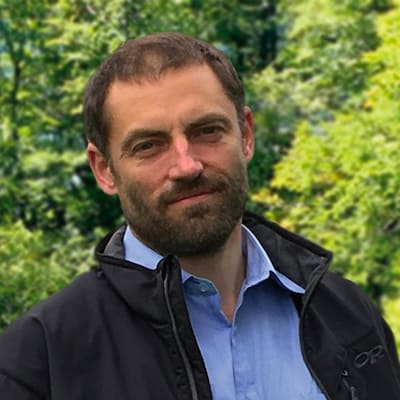
There’s nothing new about people working together. But in today’s energy markets, collaboration is no longer an option. It’s an essential tool we all need to become more comfortable with.
As anyone connected with the energy industry knows, there’s a revolution in progress. The switch from classic centralized power generation to a distributed grid is being driven by the transition to renewable sources of energy. But, apart from the technical demands, this puts on the power distribution systems of the world, there’s another impact that is less tangible but still very real: the increased need for collaboration between many different actors in the industry.
The inherent nature of a distributed grid, for example, means that grid operators increasingly need to work in close cooperation with the many diverse owners of renewable energy sources whereas, previously, the need for cooperation was limited to regulators, governments and a few larger players in the industry.
This is no mere evolution of the power distribution systems that have served the world for over a century. This is a wholesale re-engineering of how we balance the demand for power with its supply. The complexity of the task is reflected in the rapidly growing number of innovators and researchers around the world who are working in a wide range of highly specialized areas. In the UK alone, the Energy Launchpad – designed by the Government-backed Energy Services Catapult as a collaborative online community of researchers, innovators, entrepreneurs and investors – has grown to a membership of over 3,300 since it was launched in 2020.
According to the International Energy Agency, the expansion of renewable energy sources continues, despite a temporary slowdown during the Covid-19 pandemic. This growth is reflected by the need for storage: the global battery market alone is forecast to grow from $21.95 billion in 2020 to $154.9 billion by 2028. All of this, in turn, is driving the demand for AI-driven power management systems that not only balance the grid but also create revenue opportunities for huge numbers of renewable energy asset operators. Collaboration between all these actors in the market is key to the market’s success.
One example of this new level of collaborative thinking is Energy Tag: a new non-profit that brings together some of the world’s biggest renewable producers, consumers, and grid operators – as well as start-ups – to define and build a market for hourly energy certificates. The result, they hope: no more greenwashing of energy source certification when consumers (both domestic and commercial) are looking to decarbonize their energy consumption.
Of course, collaboration is not new. At PSC Consulting, our whole business is based on working in partnership with our clients, with other specialists in the industry and with regulatory and government agencies. Recently, for example, we hosted our client Sembcorp from Singapore on a UK visit as part of their mission to further develop their extensive sustainable generation assets and services. In Scotland, we took the Sembcorp team on a tour of the Cruachan Power Station, a reversible pumped storage hydro system. They also saw the newly commissioned €1.6 billion North Sea Link in action – the world’s largest subsea HVDC interconnector – which itself is a result of collaboration between Britain’s National Grid and Norway’s Statnett.
PSC’s UK Power Systems team is also involved in collaboration with Western Power Distribution and is developing an innovation project named ReFlex. ReFlex aims to create and trial a reactive power flexibility market to incentivize distribution-connected customers to provide reactive power as a flexibility service. Read more about ReFlex here.
The renowned anthropologist Margaret Meade was once asked to describe the first sign of human civilization. She pointed to a 15,000-year-old leg bone that had been broken and then healed. This was evidence that people around the victim had collaborated with each other to take care of them, bring them food and protect them while they recovered. Without this collaboration, the person with the broken leg would have died. In other words, collaboration is not simply a business tactic, it is part of what makes us human. It helps us survive.
PSC is helping utilities and other clients around the world address, survive and thrive in the face of today’s diverse challenges.
Contact us to start collaborating on your next project.
